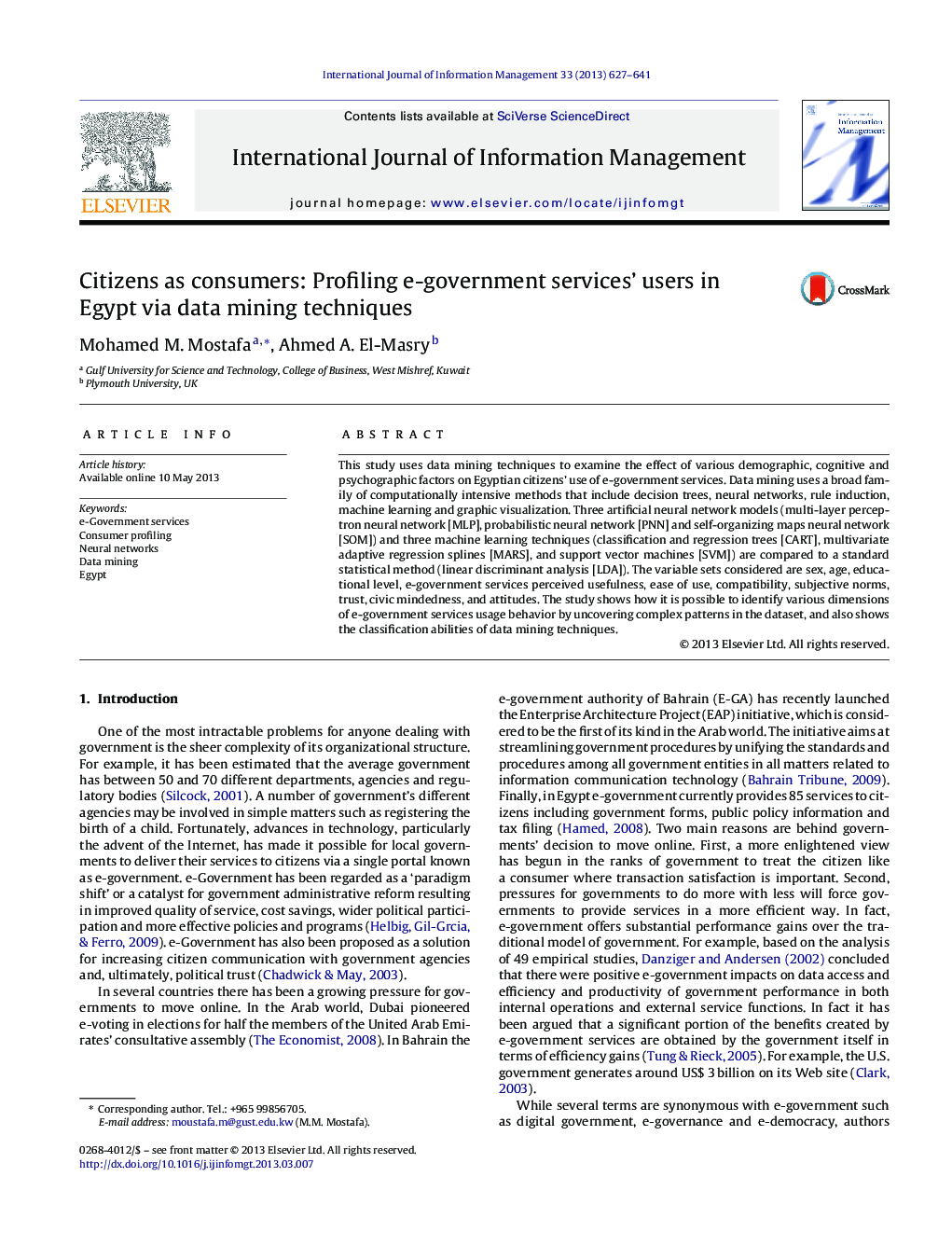| Article ID | Journal | Published Year | Pages | File Type |
|---|---|---|---|---|
| 1025683 | International Journal of Information Management | 2013 | 15 Pages |
•Factors influencing e-government services’ usage in Egypt were investigated.•Technology acceptance model served as the theoretical model of the study.•Results allow government to develop strategies for e-government systems implementation.
This study uses data mining techniques to examine the effect of various demographic, cognitive and psychographic factors on Egyptian citizens’ use of e-government services. Data mining uses a broad family of computationally intensive methods that include decision trees, neural networks, rule induction, machine learning and graphic visualization. Three artificial neural network models (multi-layer perceptron neural network [MLP], probabilistic neural network [PNN] and self-organizing maps neural network [SOM]) and three machine learning techniques (classification and regression trees [CART], multivariate adaptive regression splines [MARS], and support vector machines [SVM]) are compared to a standard statistical method (linear discriminant analysis [LDA]). The variable sets considered are sex, age, educational level, e-government services perceived usefulness, ease of use, compatibility, subjective norms, trust, civic mindedness, and attitudes. The study shows how it is possible to identify various dimensions of e-government services usage behavior by uncovering complex patterns in the dataset, and also shows the classification abilities of data mining techniques.
